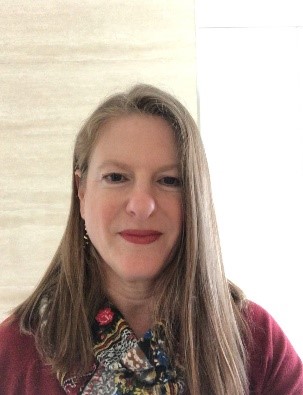Dr Miri Barak is a Professor of Science and Engineering Education at the Technion, Israel Institute of Technology, and an Honorary Research Fellow of our Department.
She is the Head of the Science and Learning Technologies Lab, which investigates cognitive and sociocultural aspects of online learning and the promotion of 21st century skills. Her work involves two major research areas: Engineering education, examining unique approaches related to critical thinking and innovation cultivation; and Science education, examining knowledge construction and motivation to learn, using location-based technologies and game-based learning.
Dr Barak holds a BSc degree, Cum Laude, in Biotech & Food Engineering, with industry work experience as an R&D Engineer. She received her MSc ?and PhD degrees at the Technion ?and was a postdoctoral fellow at the Center for Educational Computing Initiatives ??(CECI) at MIT – Massachusetts Institute of Technology, US. ?
She is the former Chair of the Institutional Review Board for Ethics in Behavioral Science Research and the former Assistant to the Technion’s SVPR for the Promotion of Learning and Teaching.
Her academic work is presented in more than 70 peer-reviewed papers and book chapters in leading international and national publications.
Google scholar profile I ORCID #0000-0002-7756-6171
Publications
Barak, M. & Yuan, S. (2021). A cultural perspective to project-based learning and the cultivation of innovative thinking. Thinking Skills and Creativity, 39, 100766, DOI:10.1016/j.tsc.2020.100766.
Barak, M. & Green G. (2021). Applying a social constructivist approach to an online course in ethics of research. Science and Engineering Ethics, 27(8), 1-24, DOI:10.1007/s11948-021-00280-2.
Morad, S., Ragonis, N., & Barak, M. (2021). An integrative conceptual model of innovation and innovative thinking based on a synthesis of a literature review. Thinking Skills and Creativity, 40, DOI:10.1016/j.tsc.2021.100824.
Usher, M., Barak, M. & Haick, H. (2021). Online vs. on-campus engineering education: examining students’ perceived innovative thinking and actual innovation. Thinking skills and Creativity, 42, 100965, DOI:10.1016/j.tsc.2021.100965.
Barak, M. & Usher, M. (2022). The innovation level of engineering students’ team projects in hybrid and MOOC environments. European Journal of Engineering Education, 47(2), 299-313. DOI:10.1080/03043797.2021.1920889.
Asakle S. & Barak, M. (2022). Location-based learning and its effect on students’ understanding of Newton’s laws of motion. Journal of Science Education and Technology, 31, 403–413. DOI:10.1007/s10956-022-09963-2.
Barak, M. & Shahab, C. (2022). The conceptualization of critical thinking: Toward a culturally-sensitive framework for technology-enhanced instruction in higher education. Journal of Science Education and Technology, DOI:10.1007/s10956-022-09999-4.
Barak, M., Yachin T., & Erduran, S. (2022). Tracing preservice teachers’ understanding of nature of science through their drawings and writing. Research in Science Education, DOI:10.1007/s11165-022-10069-3.
Barak, M., Ginzburg, T., & Erduran, S. (2022). Nature of engineering: A cognitive and epistemic account with implications for engineering education. Science & Education, DOI:10.1007/s11191-022-00402-7






